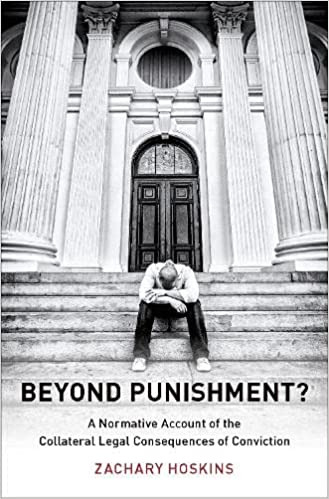Beyond Punishment? A Normative Account of the Collateral Legal Consequences of Conviction
The state subjects people convicted of crimes to restrictions on voting, employment, housing, public assistance, and other goods. Are these restrictions ever justified?
People convicted of crimes are subject to a criminal sentence, but they also face a host of other restrictive legal measures: some are denied access to jobs, housing, welfare, the vote, or other goods. Some may be deported, may be subjected to continued detention, or may have their criminal records made publicly accessible. These measures are often more burdensome than the formal sentence itself.
Drawing on resources in moral, legal, and political philosophy, this book analyses the various kinds of collateral consequences imposed in different legal systems and the important moral challenges they raise.
Find out more on Oxford University Press
 May 2019
May 2019
Oxford University Press
I aim to shed light on a pervasive legal practice that has received surprisingly little philosophical scrutiny. Given that collateral legal consequences can last long after someone completes their formal punishment and are often more burdensome than the punishment, it’s important to ask whether and when these measures are justified.
Find out more about Zachary Hoskins
Back to the bookcase